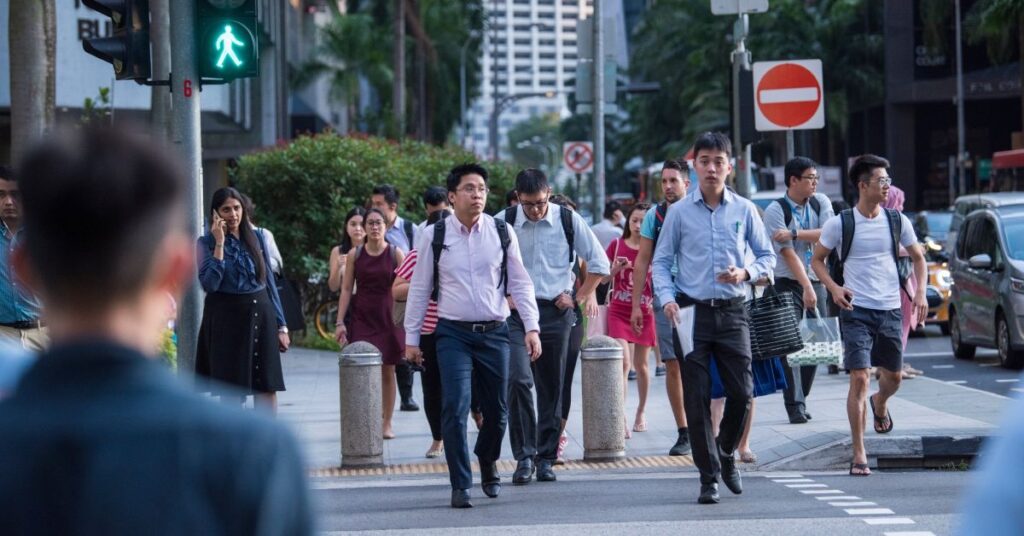During a Parliament sitting yesterday (April 8), Prime Minister Lawrence Wong expressed his disappointment with the US-imposed tariffs on Singapore, warning of their broader implications for the global trading system and the world economy.
The tariffs, announced by US President Donald Trump on April 2, impose a blanket 10% tariff on all imports into the country, with even higher rates for countries deemed to have treated the US “unfairly.”
Despite maintaining zero tariffs on American imports through its bilateral free trade agreement with the country, Singapore has not been exempted and is still subject to the baseline rate.
We are very disappointed by the US move, especially considering the deep and long-standing friendship between our two countries. These are not actions one does to a friend.
Prime Minister Lawrence Wong
While the “silver lining” may be that Singapore faces the lowest tariff rate, PM Wong stated that this offers him “no comfort,” as the tariffs will nonetheless have a significant impact on the economy and increase the risk of a full-blown trade war.
In the near term, global growth is expected to weaken, leading to a decline in external demand for Singapore’s goods and services, he noted.
Sectors reliant on external markets—such as manufacturing, wholesale trade, and transport—will bear the brunt of this impact. Additionally, some service industries, including finance and insurance, will also be affected amid global uncertainty and dampened sentiments.
With slower economic growth, fewer job opportunities and smaller wage increases for workers are expected. “And if more companies face difficulties or relocate their operations back to the US, we could see higher retrenchments and job losses.”
Given these circumstances, the Ministry of Trade and Industry is reassessing its 2025 growth forecast of 1 to 3% and is likely to revise it downward.
The government’s measures to cushion the impact of the tariffs

To support businesses and workers, PM Wong announced that the government would form a national task force to help them address immediate uncertainties, strengthen resilience, and adapt to the new economic landscape.
The task force will be chaired by Deputy Prime Minister and Minister for Trade and Industry Gan Kim Yong. While the details of its composition and key responsibilities are still being worked out, one of its primary focuses will likely be on enhancing communication and information sharing.
At the same time, the city-state has also reached out to its trading partners to share its assessment of the situation and find different ways of working together.
For now, however, PM Wong is confident that the measures announced in Budget 2025 will provide support for any short-term strain on Singaporeans and local businesses.
These include CDC vouchers, SG60 vouchers and USave rebates to ease the cost of living for Singaporeans, as well as targeted initiatives like increased ComCare Assistance for vulnerable groups.
For businesses, short-term support includes corporate income tax rebates, alongside schemes designed to boost productivity and competitiveness and facilitate pivots into new markets.
The government “stands ready to do more, if and when necessary,” PM Wong added.
What do opposition parties have to say?
There was more consensus than disagreement in Parliament regarding the impact of the tariffs.
Opposition parties, including the Workers’ Party, have shared their views, with the WP’s stance largely aligning with that of the government.
In a statement posted on its Facebook page, the WP said that Singapore should immediately start bilateral negotiations and that “no response should be ruled out, given the unprecedented nature of the act”.
The party believes that a “rational and pragmatic approach is required” at both the international and domestic levels:

PSP’s Non-Constituency MP Leong Mun Wai, on the other hand, suggested that the situation might not be so dire, noting that the 10% tariff put on Singapore is the lowest in Asia. He argued that this would put Singapore in a stronger competitive position than its neighbours to continue exporting to the US.
He also pointed out that the world has been adjusting to a post-Pax Americana era for some time, and that the tariffs only accelerate this process.
Prior to the Parliament sitting on April 8, Leong said that the government’s strong warnings over the US tariffs were “overblown,” suggesting that it could be an attempt to stoke fear ahead of the General Election.
He made these remarks at a press conference, where the party launched its manifesto. Party chairman Tan Cheng Bock went further, suggesting the government’s rhetoric might be aimed at swaying voters through fear.
“This call by the government ministers about this tariff, in my opinion, is partly to instil fear in the voter,” he said. “People might start thinking, ‘this thing is going to happen, it’s going to be serious. We better vote for the incumbent—the safe bet.'”
- Read other articles we’ve written on Singapore’s current affairs here.
Featured Image Credit: Leong Mun Wai via Facebook/ Lawrence Wong via Facebook/ Workers’ Party










